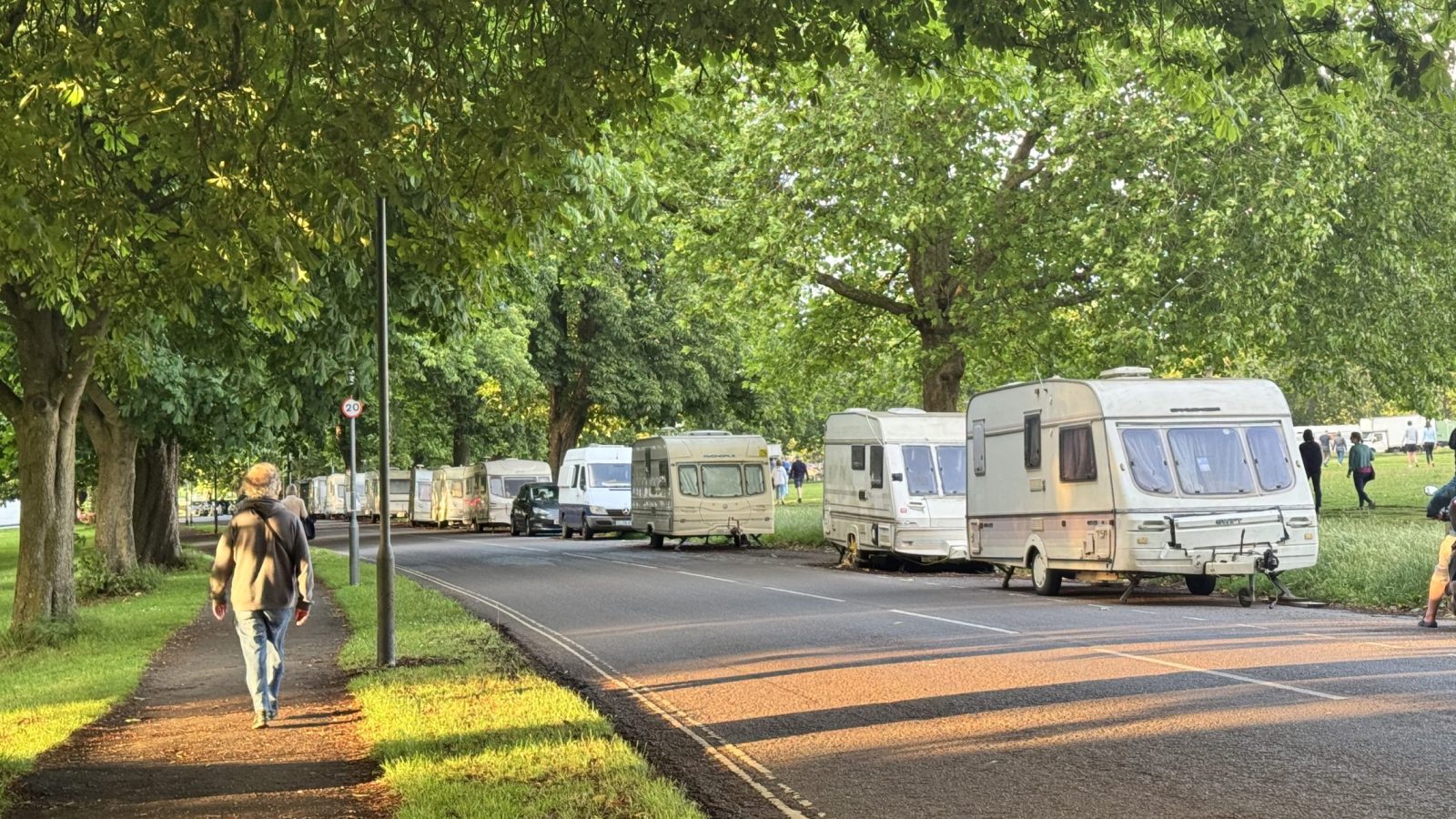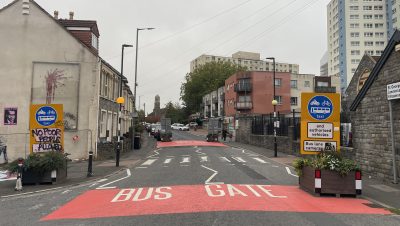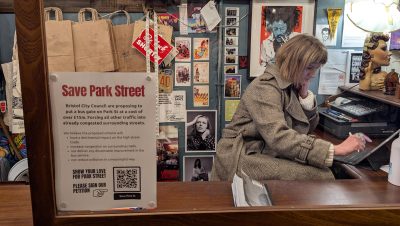Features / Van Dwellers
The long and winding road to addressing the rise of vehicle dwellings
In 2024, a bold foreword concerning vehicle dwellers was given by the former mayor, Marvin Rees, alongside a number of recommendations in a city council report called Vehicle Dwellers: The Bristol Model.
One statement in the report stood out in particular: “People living in vehicles is not a passing fad, not a ‘problem’ which needs to be solved, and not something which can be ignored.
“Vehicle Dwellers are citizens of our city and need to be respected and represented as such, with equal access to services as would be available to any other resident or visitor to our city.”
is needed now More than ever
This was an unprecedented compassionate response from Rees and the city council that many travelling communities, whether they be members of a travelling circus; Gypsy, Roma Travellers (GRT); or vehicle dwellers would like not have experienced before.
The 51-page ‘snapshot’ into the lives of these communities estimated there were 600 vehicle dwellers living in Bristol in 2024; a rapid growth from 2020 when there were approximately 100 to 150 vehicles.
The report identified some of the challenges and opportunities of living in a vehicle and recommended actions the council and partners could take to meet their needs and ensure better cohesion within the community.
Radical acceptance but concrete ideas.
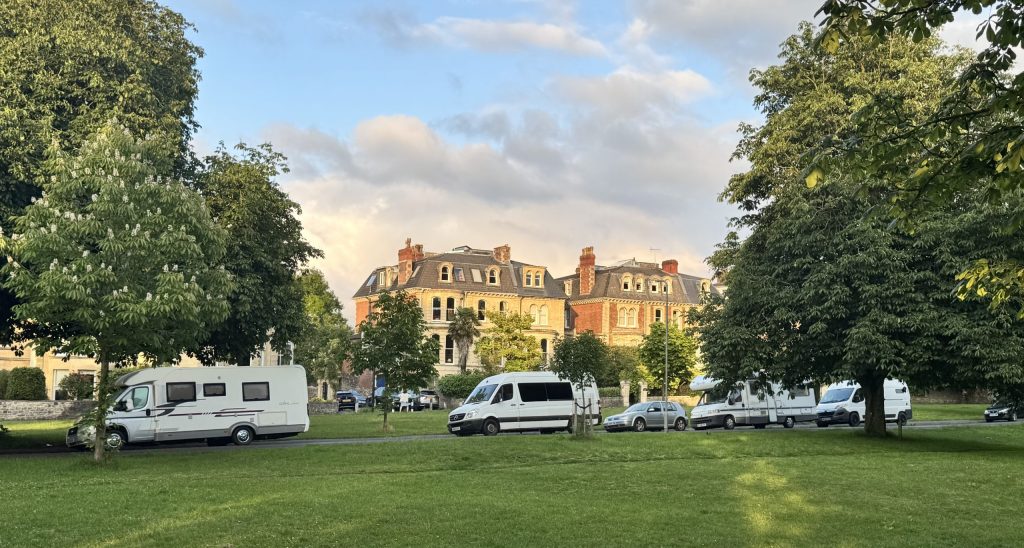
Some of the live-in vehicles in front of homes overlooking the Downs – photo: Hannah Massoudi
Fast forward to 2025 and it seems every week there is a new story about van dwellers versus home owners, emotions erupting into verbal standoffs caught on camera, another meeting of the Downs Committee or the homes & housing delivery policy committee at City Hall dominated by concerns over vehicle dwellers.
Most recently, more than 300 people gathering on the Downs on Thursday evening as part of the group Protect the Downs’ ‘Show of Support’ demonstration.
There are legitimate concerns from all angles. Those living in houses are fearful of a potential increase in antisocial behaviour, an uptick in crime levels, flytipping and the impact on what is a Site of Nature Conservation Interest.
The van dwellers are concerned with accessing services like toilets and showers, keeping their jobs and their health in check, and staying safe from targeted acts of crime (a caravan was set on fire in February).
There is a great deal of overlap in their concerns and one is particularly striking. Everyone agrees the situation as it exists now is untenable with around 640 to 680 people living in vehicles in Bristol.
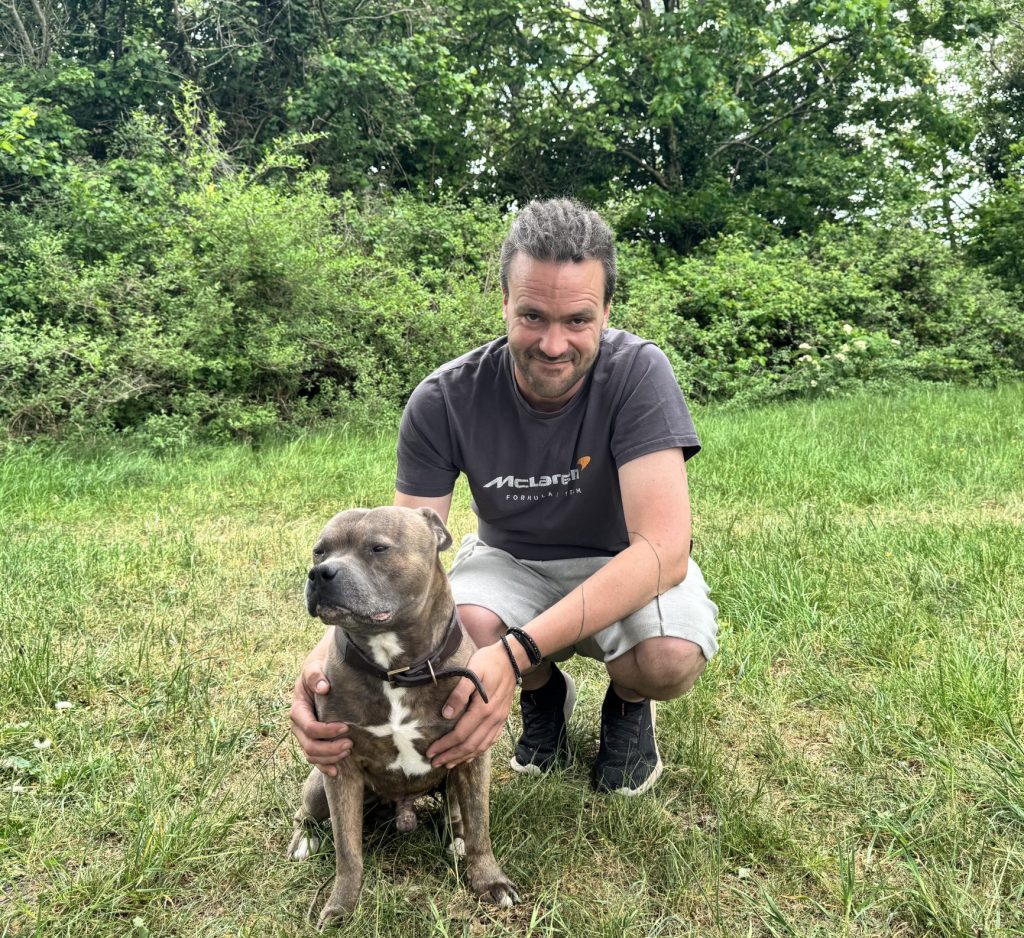
Craig Collier has lived in a several furnished live-in vehicles – photo: Hannah Massoudi
While we have vehicle dwelling sites, legal and otherwise, spread throughout Bristol, the city’s eyes are on the 442 acres that makes up the Downs and the 100 or so live-in vehicles that make up more than ten per cent of the total across Bristol.
There are individuals who pass through for the weekend for a holiday, or for work, but it is those who have lived there the longest who are feeling the full weight of this attention.
Craig Collier, in his early 40s, is a well-seasoned traveller, having just got back from time in Europe – a freedom his job as a software engineer allows.
He has lived in various places in and around Clifton for many years, with several of those in his van on the Downs.
When he used to rent, he was evicted three times by landlords keen to sell off their houses.
At that time, the evictions made him feel like his house was “being taken away.” But then he realised his home was never his in the first place.
It was the little things, like the fact he couldn’t decorate the property like it was actually his own, that stuck with him.
You don’t have much autonomy when you rent. Even when applying for a room it becomes this “crazy social competition” to be the best candidate he says.
Despite working a full time job and earning up to £60,000 a year, he’s adamant he won’t live in a house anytime soon.
Craig is fed up and disillusioned with the costs of renting and home ownership: “Gone are the days when if you had money, you could just rent somewhere and live.
“It’s now impossible. It doesn’t make any sense.”
He adds: “I don’t need to be locked in a room, paying someone else’s mortgage”. That’s a sentiment many other renters share.
Now, in his van, he feels like he’s finally “winning.”
Being in a van has also enabled him to fund and recently complete an engineering degree.
He argues that those angry with van dwellers should instead “be angry at the system that’s created a scenario where I feel so liberated living like this”.
He recognises the irony of feeling liberated by living in a van. As a child he thought people living in parks were all “addicts, dickheads and weirdos”.
Now he knows better. “Times have changed,” he says.
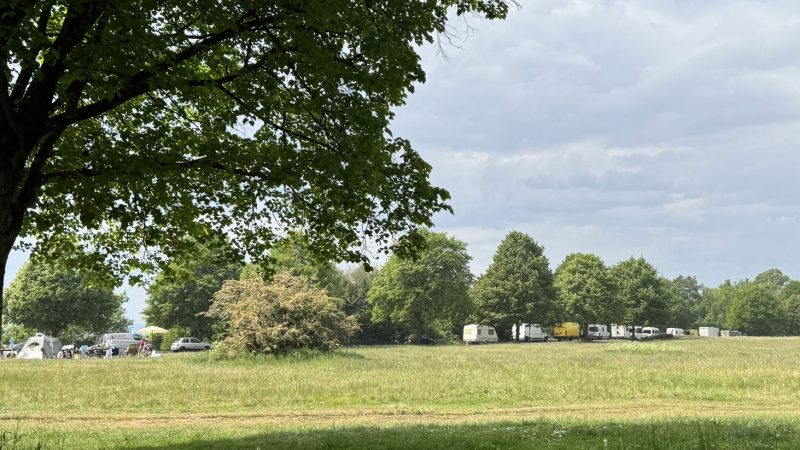
The 442 acres of the Downs means that you can take a walk without passing vehicle dwelling sites like this one overlooking the Avon Gorge – photo: Hannah Massoudi
‘Freeloader’ is a term that comes up frequently in discussions with those not part of the van dwelling community.
Yet, according to the Health Needs Analysis of People Living in Vehicles in Bristol published in 2023, 86 per cent of those living in vehicles reported being in full, part time or self-employed work.
The figure is 50 per cent for those in caravans.
Craig and others living in vehicles pay road tax, income tax and national insurance which in turn contributes to reinvestment in public services.
Several have expressed interest in paying a fee to use services such as waste disposal, shower and toilet facilities and electric points.
This is an idea that Green councillor Barry Parsons, chair of the city council’s homes & housing delivery policy committee, has shared with me when discussing the current situation and a consultation addressing vehicle dwelling that the council have in the pipeline.
Alongside proposing an increase to the number of (constantly oversubscribed) temporary sites, known as meanwhile sites, in Bristol (of which there are five), he says the council is also looking into the possibility of having service sites.
These would be places where people who are living on the kerbside, or a site that doesn’t have those facilities can come to and use for a fee.
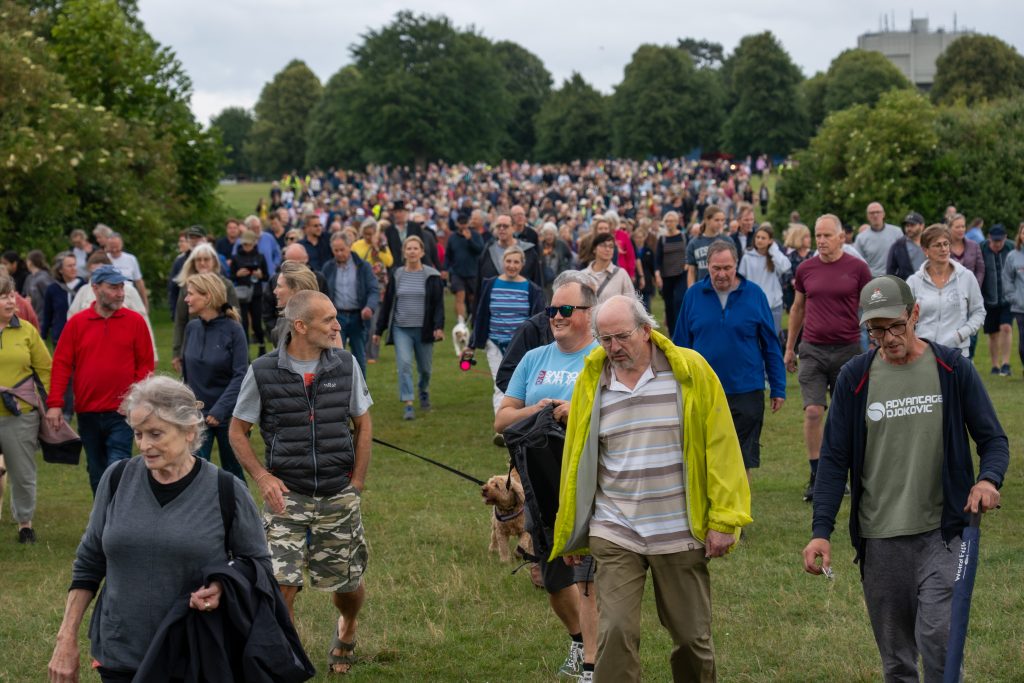
A walk on Thursday evening was organised by members of the Protect the Downs group – photo: Rob Browne
Part of the council’s upcoming consultation will include updating their Encampments and Highway Policy which looks at how they manage encampments, including the very contentious issue of enforcement.
Occasionally people living in vehicles have been asked to ‘vacate’ within a certain time frame or ‘face legal proceedings’.
Encampments on the highway are managed by the Neighbourhood Enforcement Team (NET) who often give fixed penalty notices (PCN) out or ask people to move on. Nevertheless, enforcing policy can sometimes become more challenging when vehicles don’t have number plates.
Under the Encampments & Highway Policy there are also discretionary powers that allow for enforcers to assess the situation and take ‘high’ and ‘low’ impact nuances into consideration.
Factors taken into consideration include: the nature, suitability or obtrusiveness of the encampment, the level of any nuisance including noise, the size and concentration of the encampment.
Despite clear parking rules on most streets that allow for a limited parking time, as well as some of the aforementioned factors clearly being present, there have been inconsistencies in enforcement which Parsons said that the council wants to address with clarity.
Clearly, the lack of consistency in enforcement has been a key component in the rise of vehicle dwellers living permanently in one place.
Craig Collier says many vehicle dwellers on the Downs used to “move a couple of times a week, at a bare minimum, so you’re not pissing anyone off”.
Indeed, before the masses started descending on the Downs in 2024, vehicle dwellers would often move in rotation.
Craig believes the council should focus their efforts on static caravans, rather than the more mobile vans.
“It’s like a car has just dropped them off. There’s no registration plates on the caravans, so there’s nothing to link them (the owners) back to that vehicle,” he says.
The vehicle dwellers on the Downs are not homogeneous. They form part of a tapestry of different communities, some intersecting and others entirely separate.
If you wander through the 442 acres, you’ll notice live-in vehicles are mainly concentrated on Circular Road, Parry’s Lane and Ladies Mile.
Some choose to live there while others Craig describes as living in “destitution”.
Those who occupy the middle of the grass on the Downs, more often than not are GRT.
Members of the GRT have a pair of designated council coordinators as well as a dedicated council website signposting members to resources.
Not that the one Irish traveller I could get to speak on the record has actually seen any coordinators. But they do exist.
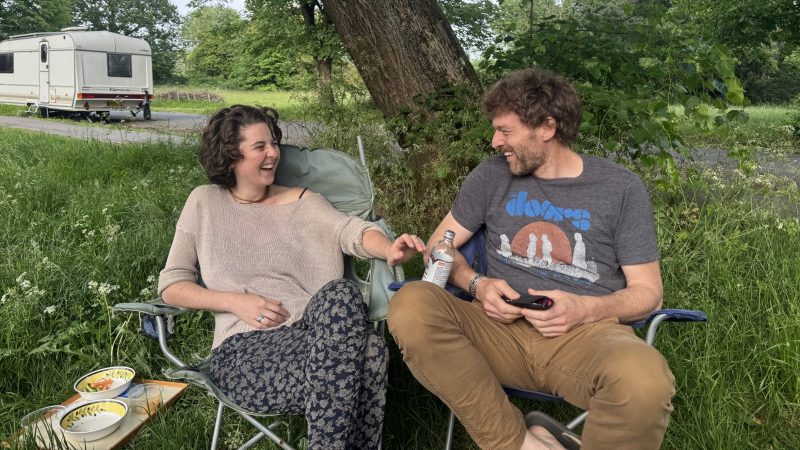
Amy lives on the Downs where her partner, who lives in a house in Bristol, regularly visits her – photo: Hannah Massoudi
Several home owners around the Downs have been expressing their feelings on vehicle dwellers through a Facebook group that has almost 2,000 members, as well as starting a petition and submitting statements for consideration at council meetings, with one committee meeting in April receiving more than 150 statements.
A report published by the committee in February recognised a distinct lack of a voices group for vehicle dwellers in the city and is now looking to support the establishment of a formal vehicle dweller voices group.
A lack of a cohesive voice has clearly been detrimental and, according to one vehicle dweller in her 30s, Amy Richardson, that’s the one thing most vehicle dwellers want.
Amy has lived in a van for little over a year now and is a yoga teacher and massage therapist. Like Craig, she decided to turn to van life after years of not finding sustainable lodgings.
She has found some aspects of living on the Downs challenging.
Her inability to speak out publicly against “all of the hate” as well as strangers often honking their horns and yelling at her has deeply affected her mental wellbeing and almost prompted a move elsewhere.
But a few of the other vehicle dwellers decided to start a WhatsApp group to support one another. This has given her a sense of community.
Amy enjoys the community aspect of living in a vehicle, ideally wanting to move to a piece of land in the future with others when it becomes more economically viable.
But, for now, she is happy where she is.
Sometimes people who don’t live in vehicles walk by and are happy to chat with Amy then go about their day.
While I wouldn’t go so far as to say he was happy, when I later stopped a dog walker to ask his views on van dwellers he said he was indifferent to their presence.
Instead, Dave the dogwalker was more angered by the build up of rubbish in the area and the double standard of having to pay car parking fines, when overstaying a car parking time limit by a few minutes, while vehicle dwellers can remain in the same spot for weeks without issue.
Although Amy is keen to not dwell on the negatives, when the topic of those who live in houses comes up her overwhelming anger and frustration causes her words to catch in her throat.
“No one judges you for how you get by when you live in a house,” she points out.
She floats the idea that homeowners come down and speak with people like her to “ask questions or just get to know who’s around”.
She says she understands the fear of not knowing who is in the vans, as she too has had that same feeling.
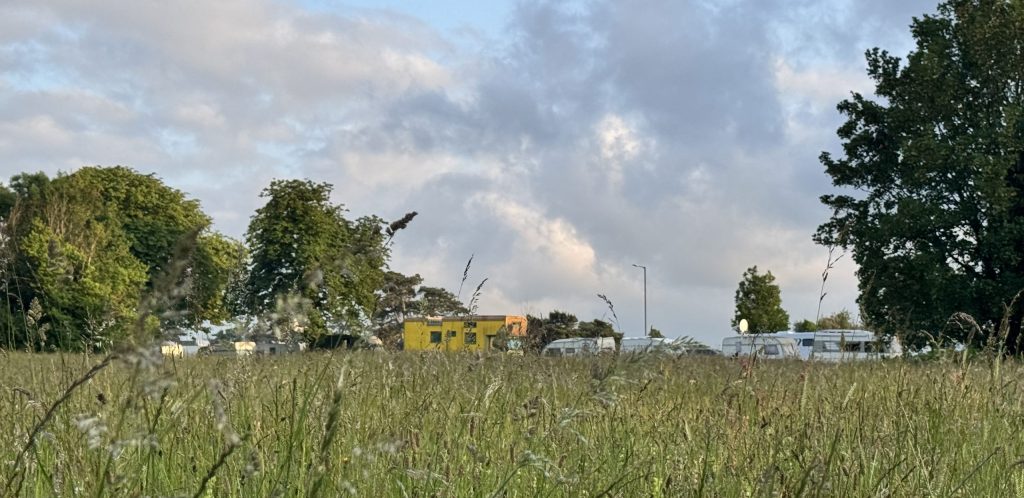
An accurate number of vehicle dwellings is difficult to ascertain – photo: Hannah Massoudi
Like many of the vehicle dwellers I spoke to, Amy wants to see positive change and thinks the lack of constructive dialogue is one of reasons the current situation has become like a “pressure cooker.”
Interestingly, both homeowners and vehicle dwellers appear to have one aim in common: wanting to protect the Downs.
We’ve all seen the state of parks after a hot, sunny day draws masses out for their BBQs and their gatherings.
While many people are quick to assume it’s the vehicle dwellers, she describes her frustration with flytippers and litterers.
She describes one family gathering of more than 20 that she sees every week who, without fail, “litter and leave.”
The group regularly leave a strewn mess of “pans, cutlery, plastic, burgers and kids’ shoes” as well as sauces “that have been sprayed up the trees”.
Amy, her partner Leigh and others have all said that they have cleaned up after several of these people, not for want of clearing their names but because “a lot of people here respect nature and love nature, and we want to tend to the land.”
While Bristol City Council announced in February that, as part of an ongoing discussion, they intend to open Bristol’s first permanent site for vehicle dwellers, it is currently still in the planning stage as they say they are working to identify an appropriate piece of land.
It’s unclear how the consultation process will ensure all voices are heard and currently a date for when the consultation will take place has not yet been set.
Looking back over years of council meetings, reading over policies and papers, even just flicking through news stories, they all point to an unsustainable growth of vehicle dwellings, compounded by various issues with a lack of affordable housing at the forefront.
Recommendations to appropriately address these issues are nothing new, so why has it taken so long?
Why now, after residents have mobilised, has this ignited a flurry of promises to enact change?
While action has stalled over the years, not just in Bristol but across the UK, there are those who live in vehicles, not out of choice but out of necessity.
There are those who cannot and will not speak out, who suffer the most when an issue becomes contentious and politicised.
All photos: Hannah Massoudi
Read next:
 Our newsletters emailed directly to you
Our newsletters emailed directly to you